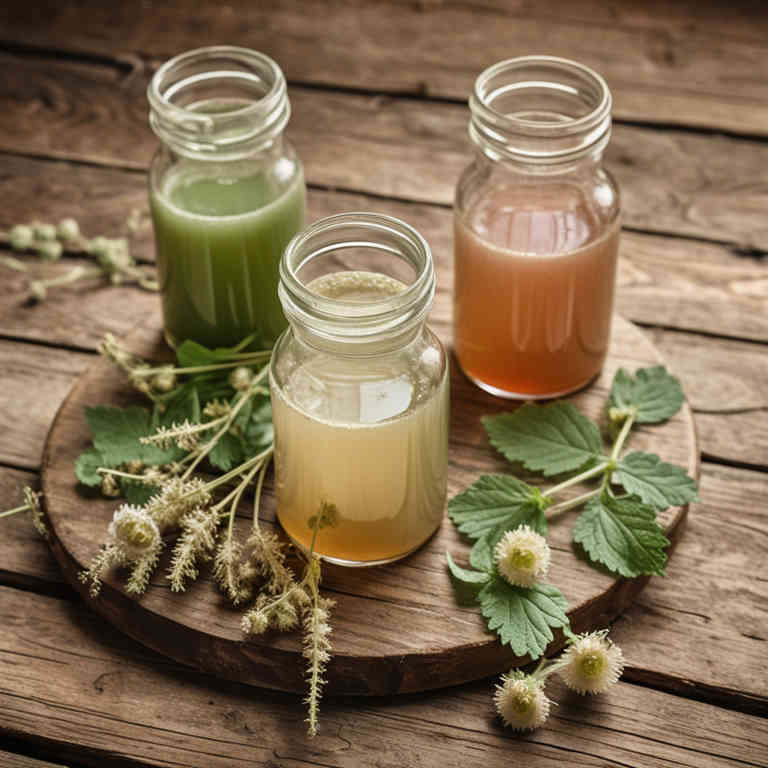Althaea officinalis juice for medicinal use

Althaea officinalis juice is a preparation derived from the roots and leaves of the marshmallow plant, known for its mucilage content.
This viscous, gel-like substance has been used in herbalism for centuries due to its soothing and demulcent properties. It is commonly employed to alleviate respiratory issues such as coughs and sore throats by coating and protecting irritated mucous membranes. The juice can also be used topically to treat skin irritations and minor wounds.
In traditional medicine, it is valued for its ability to reduce inflammation and promote healing.
Uses
Althaea officinalis juice has been used to treat respiratory and digestive ailments for centuries.
Historically, it was valued in ancient Egypt, Greece, and Rome for its soothing properties, often applied to coughs, sore throats, and skin irritations. Traditional medicine systems like Ayurveda and Chinese medicine also incorporated it for its anti-inflammatory and demulcent effects. In modern times, it is used as a natural remedy for sore throats, bronchitis, and as a mild laxative.
Today, it is commonly found in herbal teas, syrups, and topical ointments for its continued therapeutic benefits.
Benefits
Althaea officinalis juice has health benefits such as soothing respiratory tract irritation, easing coughs, and reducing inflammation.
It is often used to relieve symptoms of sore throat, bronchitis, and other respiratory conditions due to its mucilage content. The juice may also support digestive health by acting as a mild laxative and protecting the stomach lining. Its anti-inflammatory and antioxidant properties can contribute to overall immune support.
Additionally, it has been traditionally used to promote skin healing and reduce irritation.
Constituents
Althaea officinalis juice active constituents include mucilage, alkaloids, flavonoids, and tannins.
Mucilage is the primary active component, known for its soothing and demulcent properties that help alleviate irritation in the throat and digestive tract. Alkaloids may contribute to anti-inflammatory effects, while flavonoids provide antioxidant support. Tannins offer astringent properties that can help reduce inflammation and bleeding.
This herbal preparation is commonly used for respiratory and digestive health due to its mild, calming effects on mucous membranes.
Preparation
To make Althaea officinalis juice, first select fresh, mature leaves and flowers of the plant, ensuring they are free from pesticides and contaminants.
Wash the plant parts thoroughly under running water to remove any dirt or debris. Next, blend the cleaned leaves and flowers with a small amount of water until a smooth pulp is formed. Strain the mixture through a fine mesh or cheesecloth to extract the liquid.
Finally, press the pulp gently to collect the juice, which can be stored in a sealed container in the refrigerator for up to a week.
Side Effects
Althaea officinalis juice may lead to gastrointestinal discomfort in some individuals, including nausea, vomiting, and diarrhea, due to its mucilage content.
It can also cause allergic reactions in people sensitive to plants in the Malvaceae family. Prolonged use may result in the formation of a gel-like substance in the digestive tract, potentially interfering with nutrient absorption. In high doses, it may cause constipation or blockage.
Additionally, it is not recommended for pregnant or breastfeeding women due to limited safety data.